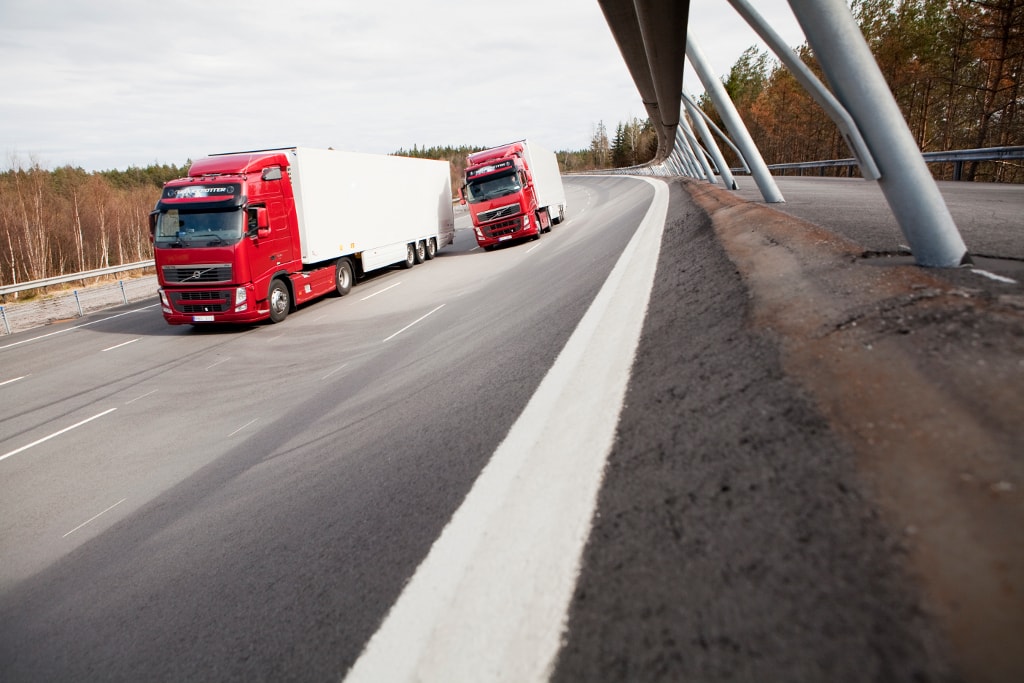Swedish truck manufacturer Volvo Trucks and tire maker Michelin have recently conducted a large-scale test that showed just how much wheel alignment, tire pressure and rolling resistance affect fuel consumption and carbon dioxide emissions.
Analysis of the test results reveals that there can be a difference of as much as 14.5 percent in fuel consumption depending on how the wheels are aligned and equipped.
The tire choice can cut consumption by as much as 11 percent, correct tire inflation brings a reduction of one per cent, while proper wheel alignment can cut fuel consumption by 2.5 percent.
"We know that wheel alignment, tire type and tire pressure all have a major impact on fuel consumption," stated Arne-Helge Andreassen, business area manager for tires and wheel alignment at Volvo Trucks' Aftermarket department.
The tests used two Volvo FH 4x2 trucks, each equipped with a 500 hp 13-litre Euro 5 engine, and each hauling a fully loaded van-bodied trailer. The rigs each weighed 40 tonnes gross. One rig was driven with a variety of incorrect wheel alignment settings. The rig was also run with various tires and various tire pressures.
"All the conditions tested were realistic, no exaggerations were allowed. Real life is bad enough. Diesel consumption increases dramatically if the wheels are not entirely parallel. And this applies to all vehicles, for construction and long-haul operations too. A trailer with a rear axle angled to the right will roll diagonally across the road and its side panels will operate as a sail that traps the wind," explained Andreassen.
The tests took two weeks to complete and the total mileage for the test cycles was just over 1000 kilometres (621 miles).
Analysis of the test results reveals that there can be a difference of as much as 14.5 percent in fuel consumption depending on how the wheels are aligned and equipped.
The tire choice can cut consumption by as much as 11 percent, correct tire inflation brings a reduction of one per cent, while proper wheel alignment can cut fuel consumption by 2.5 percent.
"We know that wheel alignment, tire type and tire pressure all have a major impact on fuel consumption," stated Arne-Helge Andreassen, business area manager for tires and wheel alignment at Volvo Trucks' Aftermarket department.
The tests used two Volvo FH 4x2 trucks, each equipped with a 500 hp 13-litre Euro 5 engine, and each hauling a fully loaded van-bodied trailer. The rigs each weighed 40 tonnes gross. One rig was driven with a variety of incorrect wheel alignment settings. The rig was also run with various tires and various tire pressures.
"All the conditions tested were realistic, no exaggerations were allowed. Real life is bad enough. Diesel consumption increases dramatically if the wheels are not entirely parallel. And this applies to all vehicles, for construction and long-haul operations too. A trailer with a rear axle angled to the right will roll diagonally across the road and its side panels will operate as a sail that traps the wind," explained Andreassen.
The tests took two weeks to complete and the total mileage for the test cycles was just over 1000 kilometres (621 miles).
